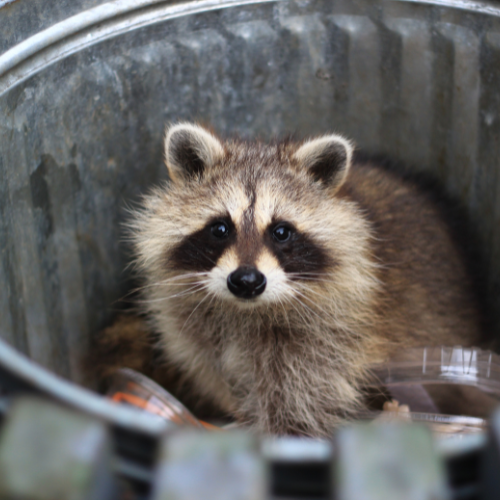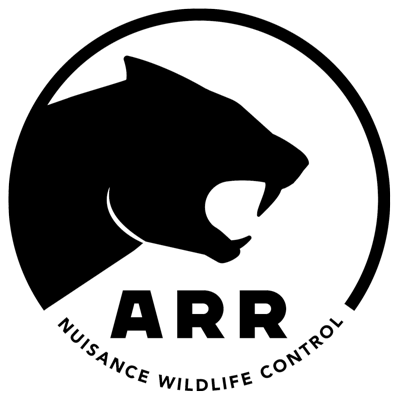Raccoons are adaptable and intelligent creatures. They are known for their distinctive black mask and ringed tail, making them easily recognizable. However, their charming appearance belies the trouble they often cause. They are drawn to urban areas due to the easy access to food, shelter, and water. This proximity to human habitation leads to various problems. These animals, while often perceived as harmless and even cute, can become a significant nuisance to homeowners and businesses alike.
One of the primary issues with these animals is their tendency to rummage through trash cans, leaving a mess in their wake. They are notorious for their ability to open lids and even doors to access food. This behavior not only creates unsightly garbage strewn across your property but also attracts other pests and can pose health risks due to the spread of diseases.
In their quest for shelter, these pests often invade attics, crawl spaces, and chimneys. Once inside, they can cause significant damage. They are known to tear insulation, gnaw on wood and electrical wires, and create openings that can lead to water damage. The noise they make, especially at night, can be disturbing. Moreover, their presence can lead to unpleasant odors from urine, feces, and, in unfortunate cases, deceased animals trapped within the structure.
Another reason these animals are considered a nuisance is their potential to carry diseases. They are known carriers of rabies, a serious viral disease that poses a threat to humans and pets. They also can spread parasites like roundworms, which can be harmful to humans.
Given these challenges, it's understandable that residents might consider handling the problem themselves. However, DIY wildlife control, especially for these animals, is not advisable. Raccoons can be aggressive when threatened and handling them without proper knowledge and equipment can result in injury or disease transmission. Moreover, there are legal considerations. Wildlife control often falls under specific regulations that require adherence to humane and legal standards.
Interestingly, despite their nuisance status, these animals exhibit some fascinating characteristics. Their intelligence is notable, with studies showing their remarkable problem-solving abilities. They have highly dexterous front paws, which they use effectively in foraging for food, and their sense of touch is enhanced by a special adaptation that increases sensitivity in wet conditions. These traits, while interesting, also contribute to their proficiency as a nuisance in urban environments.
The impact of these animals is significant. Nationwide, the cost of damage caused by wildlife, including raccoons, runs into millions of dollars annually. In Florida, their population is robust, leading to frequent encounters with humans and the accompanying issues.
At ARR Nuisance Wildlife Control, we provide professional and humane solutions to your wildlife challenges. Our team is experienced in dealing with these pests effectively and safely. We offer comprehensive services that include identifying and sealing entry points, humane trapping and relocation, and repairing damage caused by these animals. Our approach ensures the safety of both the animals and the residents while adhering to state and federal regulations.
While raccoons are an integral part of Florida's wildlife, their interaction with human environments can lead to various problems. From property damage to health risks, the challenges they present should not be underestimated. DIY attempts at control are ill-advised due to the potential risks involved. Professional wildlife control services, like those offered by ARR Nuisance Wildlife Control, provide effective, and humane solutions to manage these challenges, ensuring peace of mind for residents in Central and Southwest Florida. Contact us today for an estimate.
Frequently Asked Racoon Questions
Q1. Can raccoons remember solutions to tasks and problems they've encountered before?
A1. Yes, raccoons have shown remarkable memory capabilities, especially regarding tasks involving food. Studies have demonstrated that raccoons can remember solutions to tasks for up to three years. This cognitive ability is a testament to their adaptability and intelligence, making them adept at navigating complex environments and remembering locations of food sources or previously explored areas.
Q2. Do raccoons have a special adaptation in their hands for foraging?
A2. Raccoons have highly sensitive front paws that are incredibly dexterous. This sensitivity is enhanced when their paws are wet. The water on their paws increases the responsiveness of the nerves, allowing them to better detect and manipulate food items or objects. This adaptation is particularly useful when they forage in water bodies, helping them locate and catch prey or feel for food items in murky environments.
Q3. How do raccoons communicate with each other?
A3. Raccoons communicate through a variety of vocalizations, body language, and scent marking. They have over 200 different sounds that convey different messages, such as calls for mating, expressing distress, or signaling danger. Additionally, they use body postures and facial expressions to interact with each other, especially during social activities or confrontations. Scent marking is also a key part of their communication, used for marking territory or signaling reproductive status.
All Rights Reserved | ARR Nuisance Wildlife Control

